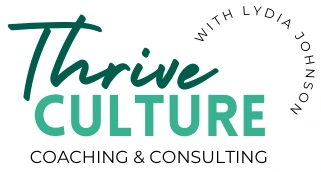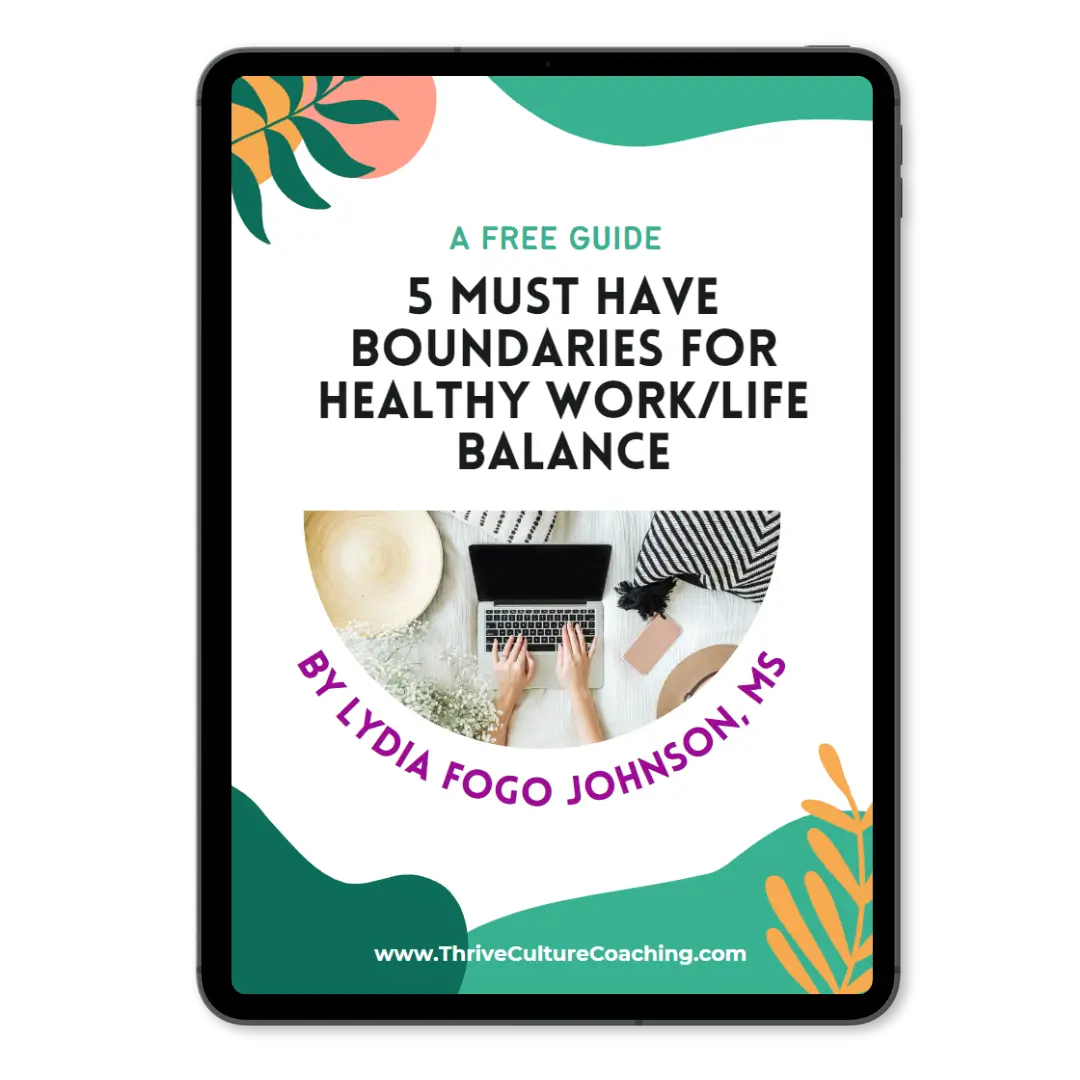Table of Contents
- Defining Career Coaching
- Types of Career Coaching
- How Does Career Coaching Work?
- What to Expect from Career Coaching
- The Benefits of Career Coaching: What the Research Says
- Key Benefits of Coaching:
- Differentiating Career Coaching from Other Services
- Career Coaching
- Career Counseling
- Is Career Coaching Right for You?
- Take the First Step Toward Transforming Your Career
Have you ever felt like you’re simply going through the motions in your career, yearning for more satisfaction and balance, and wondered if a career coach can help?
It’s easy to feel stuck, unfulfilled, or overwhelmed—especially for professionals juggling demanding roles, work, and home life responsibilities. Whether you’re a working mom trying to find balance or a professional seeking more meaning in your current position, career coaching offers a solution to help you navigate these challenges.
Imagine gaining clarity, reducing stress, and reigniting your passion for your work—all without the need to start over or endure an exhausting job search. This is the transformative power of career coaching.
Defining Career Coaching
So, what is career coaching exactly?
Career coaching is like having a personal trainer for your professional life. It’s a collaborative, goal-oriented process where a coach helps you unlock your full potential in your career. Together, we identify areas for improvement, set achievable goals, and develop actionable plans to turn those goals into reality.
Unlike traditional career counseling—which often focuses on job searching and placement—career coaching emphasizes self-discovery, skill enhancement, and strategic planning. A career coach acts as a guide, providing support and accountability while encouraging you to explore your aspirations, strengths, and values.
As a holistic career coach, I approach career coaching from a mindfulness-informed perspective. My goal is not only to help you advance in your career, but also to help you achieve sustainable career satisfaction and balance—without sacrificing your well-being or burning out.
Types of Career Coaching

Photo by Tara Winstead
Career coaching isn’t a one-size-fits-all solution. Depending on your unique needs, coaching can focus on different aspects of your career:
- Performance Enhancement Coaching: Boost your job performance and productivity in your current role.
- Leadership Development Coaching: Cultivate leadership skills to lead teams or projects more effectively.
- Executive Coaching: Hone your leadership abilities and receive support with your trickiest leadership challenges.
- Job Search Coaching: Get help with resume writing, interview preparation, and navigating job markets.
- Negotiation Coaching: Learn strategies to confidently negotiate salaries, promotions, and work conditions.
- Career Clarity Coaching: Get help with career planning, choosing a new job position or field, and making a career change.
- Holistic Career & Burnout Coaching: Overcome burnout, create work-life balance, and align your career with personal fulfillment with holistic stress management techniques.
While some coaching is short-term and focused on specific goals (like prepping for an interview), career clarity coaching, holistic career coaching, and burnout coaching—the kinds I offer—goes deeper, helping you build long-term career satisfaction and resilience.
How Does Career Coaching Work?
Different types of coaching operate differently. Short-term coaching might involve a single 90-minute session focused on a specific challenge. In contrast, holistic career and burnout coaching—which is a key aspect of my approach—delves deeply into both your career and personal life to create sustainable, meaningful change.
What to Expect from Career Coaching
Consultation, Defining Goals and Creating Action Plans
Career coaching typically starts with an initial consultation, where you and the coach discuss your current situation, challenges, and what you want to accomplish. The coaching process begins with a series of one-on-one sessions, which can be conducted in person, over the phone, or via video call. The frequency of these sessions varies depending on your needs, but they usually occur weekly or bi-weekly.
Self-Discovery, Information Gathering and Assessment
During each session, the coach will guide you through self-reflection, strategic planning, and skill-building exercises. The goal is to help you clarify your career direction, overcome obstacles, and develop the skills necessary to achieve your objectives. Between sessions, you’ll likely have “homework” assignments, such as journaling, researching opportunities, or practicing new skills, to keep you progressing toward your goals.
Ongoing Support and Accountability
Career coaching is a collaborative process, meaning your active participation is crucial. The coach provides guidance and accountability, but you are responsible for taking steps to reach your goals. The process is usually time-bound, with a clear beginning, middle, and end, although some clients choose to continue with ongoing sessions as they reach new career milestones.
By the end of your coaching journey, you should have a clearer understanding of your career path, actionable steps to achieve your goals, and renewed confidence in your professional life.

Photo by Bich Tran on Pexels
The Benefits of Career Coaching: What the Research Says
A growing body of research confirms that coaching is a powerful tool for personal and professional development. Studies from reputable sources like the International Journal of Evidence-Based Coaching and Mentoring and the International Coach Federation show that coaching leads to measurable improvements across various areas of life.
Key Benefits of Coaching:

Photo by Vicky Tran on Pexels
Clarity and Direction
Many professionals, particularly those in demanding roles, often feel overwhelmed by their responsibilities and need clarification on their career direction. A career coach helps you articulate your goals, identify your strengths, and create a roadmap for achieving your desired outcomes. This clarity can significantly reduce stress and increase job satisfaction.
Skill Development
Career coaches often focus on enhancing specific skills crucial for professional growth. This may include communication skills, leadership development, or emotional intelligence. By working with a coach, you can identify areas for improvement and develop the necessary competencies to excel in your current roles or advance within their organizations.
Increased Confidence
Engaging in career coaching can lead to increased self-confidence. As you gain insights into your strengths and values, you become more empowered to advocate for yourself in the workplace. This newfound confidence can lead to improved relationships with colleagues, better performance, and greater fulfillment in their careers.
Accountability
Coaches help clients set realistic goals and hold them accountable for taking actionable steps toward achieving them. This accountability can be a powerful motivator, ensuring that individuals stay focused on their career development and make consistent progress.
Leadership Development
Effective leadership is a crucial skill for anyone in a management or executive role. Coaching provides tailored strategies for enhancing your leadership abilities, whether you’re managing teams, leading projects, or making high-level decisions. A leadership coach can help you identify leadership gaps, develop essential skills like communication, conflict resolution, and decision-making, and refine your ability to inspire and motivate others. With the right support, you can unlock your leadership potential, navigate challenges with confidence, and lead your team or organization to greater success.
(By the way, if you’re a female leader or a woman in leadership, consider working with a leadership coach who specializes in supporting women and moms. The research is clear that women and moms face unique challenges, biases, and stressors both as leaders and during the job search, so it’s important to make sure you’re getting advice tailored to you and your unique situation.)
Differentiating Career Coaching from Other Services
While career coaching shares similarities with other professional development services, it is distinct in several key ways:
Career Coaching
Career coaching is a solution-oriented process that focuses on helping individuals enhance their current professional skills and achieve specific career goals. Coaches work with clients already established in their careers, guiding them through self-discovery and helping them identify their strengths, limitations, and aspirations. The coaching process is typically structured around actionable steps and measurable outcomes, encouraging clients to take responsibility for their professional development and progress.
Career Counseling
In contrast, career counseling is an emotion-driven approach emphasizing understanding and overcoming psychological barriers that may impede career advancement. Counselors delve into an individual’s past experiences, interests, and values to identify obstacles to success. The goal is to help clients find suitable career paths by addressing mental and emotional challenges, making it a more therapeutic process compared to coaching.
Mentoring
Mentoring involves a long-term relationship where a more experienced individual provides guidance, advice, and knowledge transfer to a less experienced person. Unlike coaching, which is often short-term and goal-specific, mentoring focuses on overall personal and professional development. Mentors share their experiences and insights to help mentees navigate their career paths and develop a broader skill set over time.
Life Coaching
While somewhat overlapping with career coaching, life coaching is broader in scope. It addresses various aspects of an individual’s life, including personal goals, relationships, and work-life balance. Life coaches help clients identify their aspirations and develop strategies, often focusing on personal growth rather than specific career objectives.
Therapy
In contrast to coaching, therapy tends to be focused on mental health issues, childhood experiences, and unpacking trauma. It is often present or past oriented and focused on emotional processing. Therapists help clients recover from mental health challenges, manage medication, and heal from past traumas. They often avoid (or are not allowed) to offer direct advice or guidance on career-specific challenges.
| Aspect | Career Coaching | Career Counseling | Mentoring | Life Coaching | Therapy |
| Focus | Career challenges, future career planning | Overcoming psychological barriers | Long-term personal and professional growth | Overall life goals and personal development | Mental health, past issues, childhood & trauma |
| Approach | Solution-oriented, actionable steps | Emotion- driven, therapeutic | Experience sharing, guidance | Holistic, encompassing various life areas | Emotional processing, active listening |
| Duration | Short to medium- term | Medium to long-term | Long-term relationship | Varies, often medium to long-term | Long-term |
| Example Topics | Work/life balance, leadership challenges | Choosing a new career | Understanding the internal politics of an organization | Self-confidence, mindset, life changes | Past traumas, childhood, mental health challenges |
These distinctions highlight how each service serves unique purposes and addresses different aspects of personal and professional growth.
Is Career Coaching Right for You?
Career coaching is an investment in your personal and professional growth. Consider these questions to determine if it’s the right fit:
- Are you ready to invest in yourself and your career?
- Are you open to making changes and stepping out of your comfort zone?
- Do you want to develop strategies to reduce stress and increase your resilience?
If you’re ready to gain clarity, develop confidence, and take action toward your career goals, career coaching could be the perfect next step for you.
Take the First Step Toward Transforming Your Career
If you’re feeling burned out, unfulfilled, or overwhelmed in your career, career coaching offers a supportive space to explore your challenges and unlock greater satisfaction in your work.
Imagine what it would feel like to rediscover your passion and thrive in your current role. If this resonates with you, book a free consultation call to learn more about how career coaching can help you create a more fulfilling, balanced career that supports both your professional and personal life.




Share